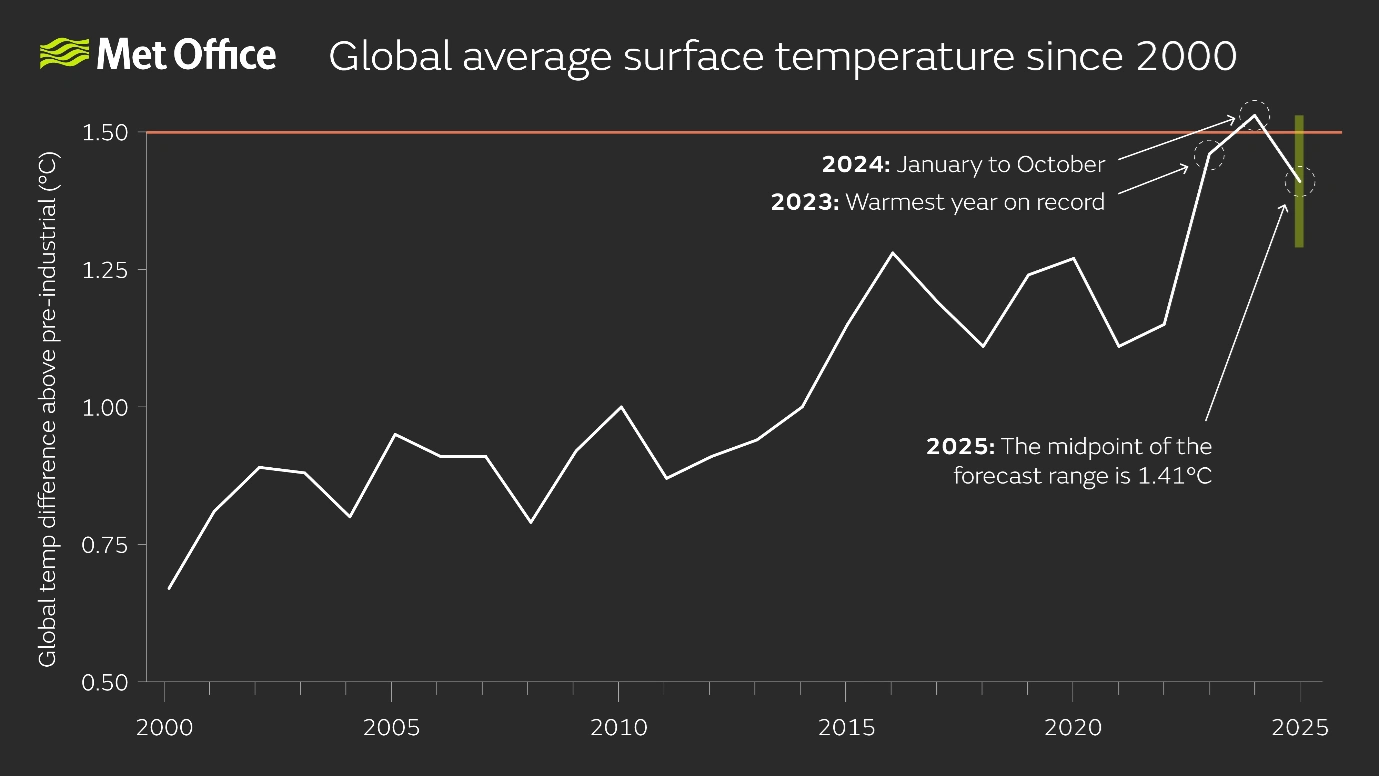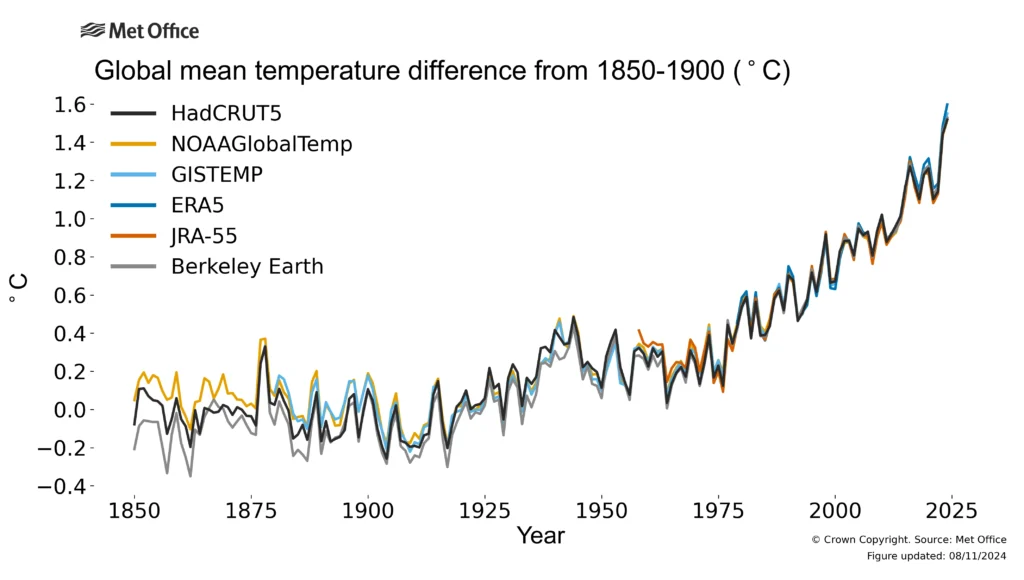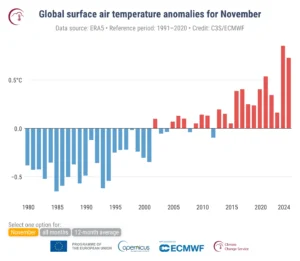Met Office Predicts 2025 to Continue Alarming Global Warming Trend

The Met Office outlook for 2025 predicts that 2025 will likely be one of the three warmest years on record. It is likely to follow 2023 and 2024 in seeing record-breaking average global temperatures.
Previously, 2023 was the hottest year on record. 2024 is expected to become more hotter with now a 99% certainty to edge out 2023, according to the data of National Centers for Environmental Information’s (NCEI) Global Annual Temperature Rankings.
In year 2024, the global temperatures are almost certain to exceed 1.5°C above pre-industrial levels for the first time.
This follows 2023, which was recorded to be 0.60°C warmer than the 1991-2020 average and 1.48°C warmer than the 1850-1900 pre-industrial level, as per Copernicus.
“A year ago our forecast for 2024 highlighted the first chance of exceeding 1.5°C. Although this appears to have happened, it’s important to recognise that a temporary exceedance of 1.5°C doesn’t mean a breach of the Paris Agreement. But the first year above 1.5°C is certainly a sobering milestone in climate history.”
— Says Dr. Nick Dunstone, Met Office
What’s Driving This Warming?
As usual, greenhouse gas emissions from fossil fuel use are the primary driver of rising temperatures. The main reasons why 2025 is likely to become another hot year on record are;
- Greenhouse gases remain the primary cause of rising global temperatures.
- The recent El Niño event has temporarily added heat to the atmosphere.
- Sea-surface temperatures are also warmer than average worldwide.
“The 2023/24 El Niño event has temporarily provided a boost to global temperature, adding a peak to the rising temperatures driven by years of increasing greenhouse gas emissions.”
— Professor Adam Scaife, Met Office
2025 Outlook
The Met Office forecasts that 2025’s global average temperature will be between 1.29°C and 1.53°C above pre-industrial levels, with a central estimate of 1.41°C.
If the prediction holds, 2025 will mark 12 consecutive years with temperatures at least 1.0°C above pre-industrial levels.
According to Met Office UK, “This would make 2024 the twelfth year in succession that temperatures will have reached at least 1.0°C above pre-industrial levels.”
The current Met Office’s Global Warming Level is based on a 20-year average and currently sets 1.3°C above pre-industrial times.

However, experts note that exceeding 1.5°C temporarily does not mean breaching the Paris Agreement which is the global pact to limit global warming to well below 2°C, preferably 1.5°C, above pre-industrial levels by reducing greenhouse gas emissions. The agreement focuses on long-term warming trends, not individual years.





